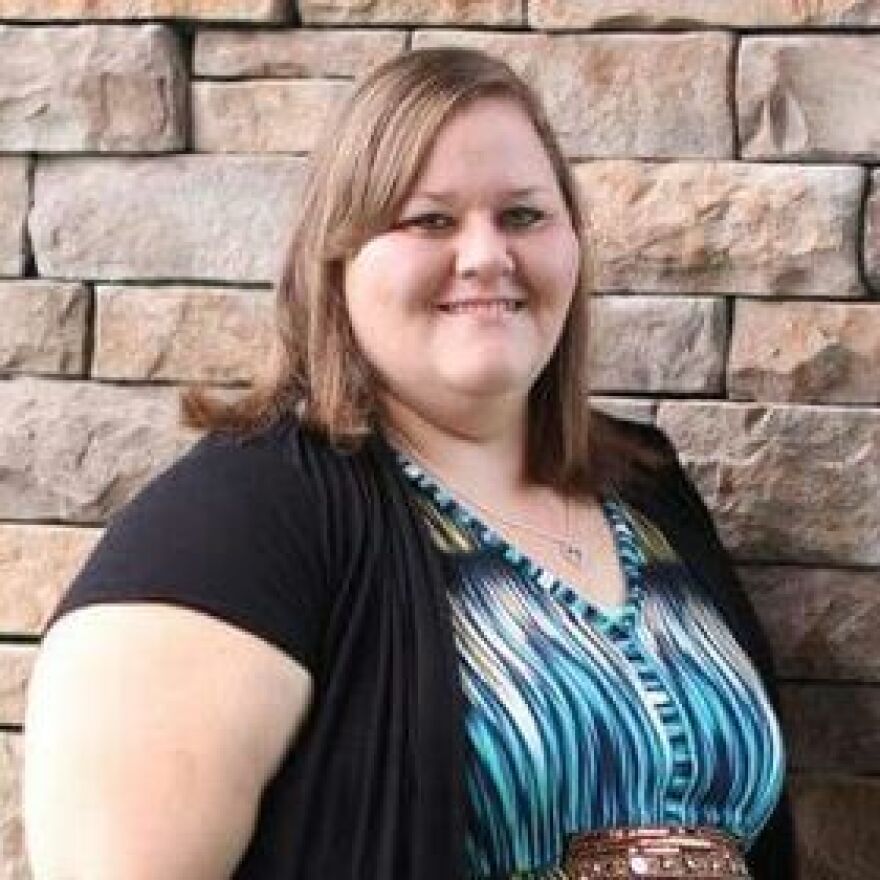Florida ranks among the top states for human trafficking and while there are no accurate figures as to the number of people involved in sex trafficking, experts say the state has a problem. But there are ways to mitigate it and the legislature appears keep on enacting most of them.
A Warrior's Story
“Before I started kindergarten, I was always told if I talked about what happened at home, I would be taken to a bad place," says 32-year-old Savanna Parvu. She's become one of the foremost voices on human trafficking at the state capitol during the past two years, having told her story to several lawmakers and multiple committees. Democratic Sen. Lauren Book has called Parvu a "warrior".
When Parvu was 9-years-old, her father had a stroke and became disabled. Her mother, a drug addict and prostitute, later sold her to a pimp when Parvu was 11.
“When I was 12 I started being sold out of hotels in Central Florida, and staff knew and even assisted my trafficker in letting people in so he wouldn’t have to stand there the whole time. But no one ever did anything to help me or even ask if I needed help."
Though if anyone were to offer, "I would have told them no because that’s what I was told from the time I

was…as far back as I can remember, that “you don’t tell anyone what happens at home,” and I didn’t know I needed help. This was just my life."
Through it all, she still went to school. There were days when she asked for detention to avoid going home.
Between ages 11 and 13, Parvu says she had two abortions. The abuse continued when she went into foster care, and only then did she learn it wasn’t “normal” to be sold for sex.
Happening In Plain Sight
"How many of us, growing up, believed our parents were all powerful? And we knew, whether we could articulate it or not, that our survival depended on their love and good will.”
Jennifer Dritt is Executive Director of the Florida Council Against Sexual Violence. Both she and Parveau recently addressed the Senate’s Children and Families Committee to discuss sex trafficking, and its consequences. Those have been lifelong for Parveau who eventually had to have a hysterectomy because of health problems stemming from her abuse. She has been working with Democratic Sen. Lauren Book for the past two years on a bill to crack down on hotels that ignore the signs of human and sex trafficking. Book’s bill has expanded to include language regarding massage parlors in the wake of busts at a dozen such businesses in Central and South Florida.

Most trafficking occurs in plain sight, and Dritt says and many victims are coming from the state’s foster care system.
“We know kids at risk, who are vulernable—kids who’ve been sexually abused, physically abused, and profoundly neglected…throw-a-way kids, kids who’ve come out to their parents and have been thrown out on the street—it’s survival sex," she explains.
“These eyes have seen the brokenness in eight-year-old girls. I have lifted, with these hands, 12-year-old boys who are some of the most broken, shattered lives I’ve ever seen," said Pasco County Sheriffs Department Corporal Alan Wilkett.
He's discovered brothels disguised as barbershops and fake modeling companies that lure vulernable kids and end up grooming and tricking them with promises of fame. Wilkett says it doesn't take much.
“Oh, we’ve got a chance for JCPenney, if you just show up in a bathing suit. Now you have a 12-year-old in a bathing suit thinking she’s got a shot at working with JCPenney. Next thing you know, she doesn’t have a top on. The grooming process. How quickly can this happen? 72-hours," he explained.
Addressing the Problem
“If I could snap my fingers, what would you want in the state of Florida to minimize or eradicate human trafficking?” asked Democratic Sen. Kevin Rader. Wilkett says, "going after the buyers.”
He says the state should consider creating a registry of people charged with buying sex, a “John’s registry”.

That’s part of Sen. Book’s Human Trafficking bill. He is also encouraging the state to adopt signs about human trafficking inside businesses often associated with it, like massage parlors and strip clubs. Yet as the state works to crack down on people who solicit for sex and considers increasing criminal penalties on them, Dritt says it’s also important to keep investing in victims as well, and that starts by not ignoring them.
"[We need] engagement from communities," she says, "[a] willingness to not look away and to hold one another accountable, to understand why people don’t want to cooperate with law enforcement, and ensure that services are not contingent on cooperation, and understand the trauma bond...don’t attack the attachment. Understand it.”
She notes the people and perpetrators of human trafficking often look like the communities they’re in.
“As we see with Robert Kraft, people we know and respect commit crimes like this. Every day, in our neighborhoods, in our homes, people we love. It happens. People we know and respect do these things.”
Robert Kraft is the owner of the New England Patriots. He’s been charged with soliciting prostitution after being ensnared in the massage parlor sting.







